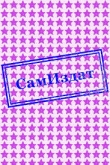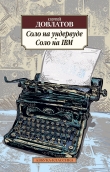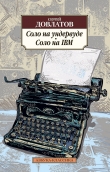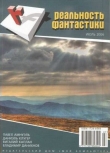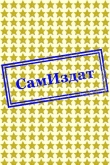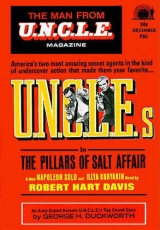
Текст книги "[Magazine 1967-12] - The Pillars of Salt Affair"
Автор книги: Bill Pronzini
Жанры:
Боевики
,сообщить о нарушении
Текущая страница: 5 (всего у книги 8 страниц)
Panels slid back in the walls. Armed men emerged from the elevators, milling onto the concrete floor.
Solo let out the clutch. Tires screamed, smoking, and the jeep shot forward. He hunched over the wheel, the crack of revolvers, sounding behind him. He heard a bullet thunk somewhere in the rear of the jeep, others buzzing overhead, and then he was out of the warehouse and onto the dirt road, careering down the winding mountainside.
He drove as fast as he dared, one hand wrapped on the wheel, the other changing gears rapidly, sliding the jeep in and out of the turns. He had made it. It would take them several minutes to change the tires on the remaining jeeps. By that time he would have several miles on them.
Solo knew just about where he was. The river lying below him was the Colorado; one of the mountain peaks in the distance, the highest, was Pike's Peak. That meant he was in the Colorado Rockies, probably near the source of the Colorado River. Rocky Mountain National Park. There would be a ranger station down there somewhere. If he could reach that...
He had gone more than ten miles, losing altitude rapidly, the Colorado River looming larger ahead of him as he neared the canyon through which it flowed, when the jeep began to sputter, its speed diminishing.
At first, Solo could not understand the loss of speed. He geared down. The engine coughed again. Then Solo's gaze held on the dashboard, and he knew immediately, with a sense of burning frustration, what had happened.
The bullet that he had heard lodge in the rear of the jeep must have hit the gas tank. The needle on the fuel gauge read empty.
THREE
Napoleon Solo did not know what to do. If he tried to go down the road the rest of the way on foot, THRUSH would have him in a matter of minutes. There was nothing but mountain, granite bluffs, to his left, and nothing but the canyon to his right. And on top of that, he was unarmed.
The engine on the jeep died. Solo brought it to a halt, angling it across the road. That would slow them somewhat, but not nearly long enough. He clambered out and stood staring down into the canyon.
Could he hide? No, that was out. How long could he stay hidden? THRUSH would have patrols on the road and in the area. No, he couldn't hide, he couldn't go down the road on foot, he...
He saw the railroad tracks then. Hope surged inside him. The tracks lay on the side of the canyon wall, almost a hundred feet down. They were abandoned, partially hidden by rocks and dirt, and that was why he hadn't seen them at first. Part of the tracks had begun to sag, crumbling away to leave nothing but thin ledges in the already narrow bed.
The tracks had to lead somewhere, Solo knew. Even abandoned, they still had to tie in to a main rail line. All he had to do was follow them, keeping hidden from the THRUSH pursuers.
The canyon wall, dropping away to the floor and the river below, was steep and irregular. It would be precarious, climbing down, but Solo knew it was the only way. He could detect eroded holes in the granite that, if he were extremely careful, would yield foot and handholds.
He started down. It was late afternoon, and although the sun was out, the wind carried the chill of snow. There would be a flurry tonight, perhaps even a storm. If he were caught unprotected at night here in the Rockies, he would freeze to death before morning.
Cold sweat stuck Solo's clothes to his body as he worked his way down the canyon wall. Foothold, hands digging into the slippery granite, another foothold, all with tortuous slowness. Once, his foot slipped, and he almost lost his grip. His body dangled for a split instant above the tracks and the nothingness beyond. Then his clutching hands and feet caught, held, and he closed his eyes, not daring to look down.
He reached the tracks after what seemed like an eternity. He stood leaning against the wall of rock, feet planted solidly on the track bed, dragging the chill air into his lungs. Which way? he thought. Left or right?
He looked to the left. The tracks ran along the canyon wall and then curved out of sight. He could see where much of the tracks had been torn away by erosion and falling rocks.
He looked to the right. The tracks were sloped slightly downward until they, too, disappeared around the curve of the canyon. They looked passable as far as he could see. He went to the right. He walked carefully, watching his feet. The last thing he wanted was an inadvertent slip on one of the rocks there, and a possible slide.
Solo rounded the curve of the tracks along the wall, ears straining. He thought he heard the whine of jeep engines above him. He stopped, hugging the granite.
He saw the trestle.
The tracks dropped sharply some fifty feet, then veered to the left, following the line of the canyon face. The distance across the canyon itself at this point was fairly narrow, and it was here that the trestle spanned the two walls. It was supported by rusted steel that had been sunk and anchored into the granite on both sides. A sagging, wooden snow shed covered the length of the trestle.
Solo could see that the tracks began to drop steeply on the opposite wall. They led down out of the mountains, all right. Just as he had thought. He started down the tracks toward the trestle.
Solo heard the helicopter then. A cold ball of ice knotted his stomach. He stopped, looking upward. It was moving out over the trestle from the granite behind him. He saw two men inside.
It was the helicopter he had seen inside the warehouse at the THRUSH fortress. Solo had forgotten about it. He should have known they would send it up to search for him. He leaned back against the canyon wall. Maybe they wouldn't see him.
The helicopter, hovering above the canyon, rotor blades whirring, started to rise, banking to his left, away from him. They hadn't seen him. His relief was short-lived. The chopper halted its climb, sat motionless in the air like a giant hummingbird for an instant, and then started back.
Solo saw one of the men inside leaning out, and sunlight flashed off something metallic. Machine gun. They'd seen him, all right. And they were moving in for the kill.
Solo was trapped, and he knew it. He was the proverbial sitting duck, a naked target against the granite wall. There was no place to hide. No place...Then suddenly he thought of the trestle!
If he could reach it, get inside, they couldn't get at him with the machine gun. But what good would it do? They could hover up there for hours, keep him trapped inside until more members of THRUSH reached him along the tracks.
Maybe I should just stay here and get it over with now, Solo thought helplessly. No, he couldn't think that way. As long as there was a chance, no matter how slim, he had to take it. The fate of the world was at stake.
The helicopter was coming closer. He saw the man with the machine gun leaning out. The chopper was close enough so that Napoleon Solo could see the man's face. He was one of the three men who had run him and Illya off the road in Teclaxican, one of the men responsible for his friend's death.
Solo gritted his teeth, turned, and began to run toward the trestle, his feet skidding on the rocky surface, unmindful of the danger of falling now with an even greater danger overhead.
The man in the helicopter fired a short burst from the machine gun. Solo heard the bullets chunk into the granite where he had been standing, spraying chips of rock at his back.
Solo stumbled in his light, staggering, and then regained his balance. More bullets from the chattering Thompson gun overhead nipped at his heels, splattered into the granite. Miraculously none hit him.
He reached the trestle and ducked into the cover of the snow shed, leaning against one of the wooden walls, fighting for breath. He could hear the copter whirring over the shed.
Solo wiped sweat from his eyes and looked downward. His heart jumped into his throat. If he had taken another ten steps in his blind flight he would have fallen to his death on the canyon floor below.
Part of the wooden ties supporting the tracks had long since dropped away. One of the rails hung loosely there, about to give way. The other, on the side Solo stood, still seemed to be solid. It was the only passage, and a hazardous one, through the trestle. It would take careful footwork to get past the yawning hole.
Solo closed his eyes, his breathing returning to normal. There was nothing he could do now but steel himself for the rush he would have to make on the open tracks down the other canyon wall.
He was aware of the sound of the helicopter outside. But the noise of its rotos did not seem to be overhead; it was opposite the shed wall across from him. It seemed to be dropping. Why would they...
He saw the tip of one of the helicopter blades through the hole in the tracks, and he knew in that instant what they were doing. He felt the chill of fear move up his spine. They were going to come after him from beneath the trestle.
They rust have known about the hole, known that there was no place Solo could hide from them. If he went back the way he had come, they would climb and pick him off. And there was not enough time for him to work his way across that single rail to the other side of the hole.
There was no escape.
The helicopter hove into view below him, and Solo saw the evil, grinning face of the man with the machine gun as he leaned out, raising the weapon up towards him. Solo hugged the wooden wall behind him in helpless panic, waiting for the bullets to tear into his body.
ACT V: ONE-WAY DEATH STREET
Come in and sit down," Estrellita Valdone said. "There will be a short wait before we depart."
"I'll stand, thank you," Illya said. He was still looking at the gun clenched in her hand.
The man standing behind Illya Kuryakin jammed the gun muzzle into his back and shoved him inside the warehouse office. "The lady said sit down, friend," the man said. "You do like she tells you."
There was a single, straight-backed chair next to the desk. Illya sat down. The man came inside the office and stood near the door. He was tall and angular, with a bloodless slash for a mouth, and dressed in khakis similar to Estrellita's.
Illya leaned back in the chair, resting one hand on the corner of the desk in a position of apparent relaxation. But inside, his muscles were taut, wound like a steel spring, ready to explode if the slightest opportunity for escape were to present itself.
"Well," Illya said. "Nice little THRUSH trap you've baited here. Too bad you're going to be caught up in it yourself."
Estrellita Valdone smiled her cold smile. "Really?" "There are ten U.N.C.L.E. agents waiting outside," Illya told her. "I should think they'll be battering down the doors any second now."
The angular man gave a short, barking laugh. "Won't work, friend. We were watching when you came up. You were alone, all right."
"When I came, yes," Illya said smiling. "But were you watching the front when I knocked on the rear door?"
The man frowned, looking at Estrellita. She said, "You don't really expect us to believe that, do you?"
Illya Kuryakin shrugged.
The angular man seemed uncertain. "What if he's telling the truth?"
"He's not telling the truth, Benson," Estrellita said. "It's an old trick. He wants to make us believe there are U.N.C.L.E. agents outside so I will have you go out to look. Then he'll be alone here with me. It would be much easier for him to overpower one person, and a woman at that. Isn't that correct, Mr. Kuryakin?"
Illya shrugged again, his face impassive. Estrellita Valdone had guessed that he was lying, and had guessed his purpose behind the lie.
Now he had to contend with both Estrellita and the man named Benson. And they were well trained, standing apart from one another, watching him carefully. When he made his move, as he knew he must, it had to be quick and sure, with no margin for error. Perhaps if he could get them talking, distract them somehow-
He said, "What are we waiting for, if you don't mind telling me?"
"A telephone call," Estrellita said. "When we receive it, five minutes from now, we shall take you to where Mr. Solo is."
"And just where the devil might that be?"
The cold smile flashed again. "You will learn that, Mr. Kuryakin, when you arrive there."
At the end of that five-minute period,– as Estrellita had said, the telephone rang. She took a single step to where the phone was perched on the opposite side of the desk from where Illya sat. She caught up the receiver.
Illya's eyes followed her. It was then that he became aware of the paperweight.
It was a large, oblong piece of black onyx, highly-polished, and it sat on top of a sheaf of bills of lading on the half of the desk nearest Illya. His hand, resting on the desk where he had placed it when he sat down in the chair, was only inches away from the paperweight.
Illya looked at it, took his eyes away, and stared straight ahead. That piece of polished onyx represented a possible opening. He tensed the muscles in his legs, planting the toes of his shoes solidly on the floor.
Estrellita seemed to be listening intently to whatever was being said on the other end of the wire. Then she said, "Yes," just that single word and nothing else, and hung up the receiver. She started to move away from the phone.
Eyes still staring straight ahead, Illya said a silent prayer that he would remember the exact position of the piece of onyx. Then his arm lifted, darting sideways, and he felt his fingers close over the glossy surface. His eyes flicked right.
Well, he thought, this is no time to be a gentleman. And he threw the paperweight at Estrellita Valdone.
In the same motion, he came up off the chair, toes digging for leverage against the floor, and hurtled his crouched body at Benson. He heard Estrellita's sharp cry of pain, and the thud of the automatic as it flew from her hand and bounced on the floor, and he knew his hurried aim had been accurate. Then his shoulder slammed with jarring force into a surprised, off-guard Benson's midsection.
The force of Illya's charge pushed Benson backwards, and the crack of his head against the door jamb resounded dully, music to Illya's ears. Benson squeezed the trigger of his own gun as he hit the jamb, a reflex action, but his arm had been pushed to one side by the contact and the bullet thudded harmlessly into the wall.
The angular man slid unconscious to the floor, Illya on top of him. Illya Kuryakin tore at the gun in Benson's fingers, pulled it free, and then rolled over the prone form, coming up on one knee with the gun up and ready in his hand.
Estrellita was sitting on the floor in front of the desk, holding her right arm. Her eyes were squeezed shut in silent pain.
Illya Kuryakin leaned back against the desk, passing his left hand through his blonde hair. "Now, Miss Valdone, suppose we play twenty questions."
Estrellita's black eyes were open now, filled with pain and hatred. "I won't tell you anything," she said defiantly. "Not a thing."
"We'll see about that." Illya took his U.N.C.L.E. communicator from the pocket of his suit and thumbed out the antenna. "Open Channel D, please," he said.
TWO
Illya Kuryakin, Mr. Waverly and two other U.N.C.L.E. agents, specialists in the art of interrogation, spent two hours questioning Estrellita Valdone at U.N.C.L.E. headquarters.
They questioned her individually and collectively, using every known verbal trick of extracting information. They flung questions with rapid-fire quickness, trying to confuse her. They made seemingly irrelevant queries, carefully phrased, hoping she would let slip the slightest bit of useful knowledge.
But Estrellita Valdone, whatever else she might be, was also extremely loyal. She remained adamantly silent. The man named Benson refused to tell them anything either.
Illya and Mr. Waverly, having left the specialists to continue the interrogation, were now seated in Waverly's office. Illya had become increasingly mired in futility. They had the answers right there, not two doors away from them, yet they couldn't pry them loose from the two THRUSH agents. And time was running short.
The two men sat in strained silence. Waverly was pouring over a recent batch of reports from U.N.C.L.E. offices throughout the world, reports which told him nothing he did not already know. Illya watched his superior shake his head sadly. The tension inside him was about to reach a boiling point.
There was a knock on Waverly's door. He pressed one of the buttons on his desk and the door opened, admitting an agent named Bradshaw, who Illya knew slightly, from Intelligence Section IV.
Waverly looked up as Bradshaw approached his desk. "Yes?"
"I have the reports on Benson and the Valdone woman you asked for, sir," Bradshaw said. "Took us some time to run them down."
Waverly took the papers Bradshaw handed him. "What were you able to ascertain?"
"Not much, I'm afraid," Bradshaw said. "We have no files on Estrellita Valdone; she's either a new recruit or an agent that THRUSH had kept well-hidden. Apparently she really is a model in Mexico City, lives alone in an apartment there, but beyond that we draw a blank."
"And Benson?"
"No known THRUSH activities," Bradshaw said. "At least, no definite connection with them. But he's got a criminal record-strong-arm stuff, mostly-that dates back several years."
Waverly was reading one of the papers Bradshaw had given him. He frowned slightly, tugging at his ear lobe. "Interesting item here," he said. "I expect if we were to confront our Mr. Benson with this bit of information, he might become more amenable to answering our questions. What do you think, Mr. Kuryakin?"
Illya sat up straighter on his chair, taking the paper from Waverly. He read it over. "Perhaps he might, at that," Illya said, determination replacing some of the tenseness inside him "Shall we find out?"
"Indeed," Waverly said, rising.
THREE
Benson sat on a straight-back chair in one of the U.N.C.L.E. interrogation rooms down the hall from Waverly's office. He sat stiffly, apparently somewhat bothered by the constant questioning, but remaining obstinately quiet.
Waverly spoke softly to the two interrogators, and they left the room, leaving Benson alone with he and Illya.
Illya said, "Have you decided to talk yet?"
Benson said nothing, glaring up at him.
Illya smiled faintly. "How many times have you been in prison, Benson?"
"What?" Benson said, startled at the sudden turn in questions.
"Three, isn't it?" Illya asked him. "Once for assault with a deadly weapon. Two years. Twice for armed robbery. Four years and, eight years. Three different terms, Benson."
"So what?" The angular man said, not quite understanding.
"Just this," Illya told him. "In your language, that makes you a three-time loser. Surely you know what it means if you're convicted of another crime."
Comprehension touched Benson's eyes. The color drained from his face.
"That's right," Illya said. "Life imprisonment. Without possibility of parole. The rest of your life behind bars, Benson."
"Wait a minute," Benson said. "Listen, I haven't committed any crime. You can't prove anything against me."
"Can't we? You held a gun on me in that warehouse. You threatened me with it. That constitutes assault. And if you want more, there's the fact that you're a convicted felon in possession of firearms. I shouldn't think we'd have any problem proving guilt."
Benson's eyes were wild. Illya Kuryakin knew he had struck home, just as he had hoped Many men of Benson's breed possessed an innate fear of being caged, and he was no exception.
The angular man wet his lips. "Are you offering me a deal?" He said. "I tell you what you want to know, and you forget about what happened in the warehouse, is that it?"
"We are not in a position to offer a 'deal', as you put it," Waverly said. "However, if you were to volunteer assistance of your own accord, I expect a court would be inclined to lenient action. We would be willing to testify in your behalf, naturally."
"What about THRUSH?" Benson said. "They would kill me if they knew I gave out information.''
"We can offer you every possible protection," Waverly told him. "THRUSH need never know what you tell us here tonight."
Again, Benson wet his lips. He seemed to be weighing in his mind the possibilities. His fear of imprisonment, even greater than his fear of T H RUSH, won out finally. He said, "All right. I'll tell you what I know."
Illya had been holding his breath. He let it out slowly. "Where were you taking me tonight?"
"I don't know," Benson said.
"I thought you agreed to cooperate," Illya Kuryakin said, anger necking his voice.
"I don't know where they were taking you," Benson said. "That's the truth. I swear it. The woman, Estrellita, was the only one who knew."
"All right," Illya said. "Tell us about the salt chemical."
"It's being developed at a secret hideaway," Benson said. "I don't know where."
"What's the name of the man behind the project?"
"I don't know that either," Benson said.
"Just what do you know?"
"Yesterday, I received a coded message," Benson said. He passed a hand nervously across his face. "I'd gotten them before. I was part of the team that conducted tests on the salt chemical. We never knew where the tests were taking place until we received the message."
Illya Kuryakin nodded, looking at Waverly. Now they were getting somewhere.
"This message you received yesterday," he said. "What did it say?"
"It gave a time and a date. Seven o'clock, the twenty-third."
"That's today!"
Benson nodded. "And it gave the name of a town. Pardee."
"You were supposed to go there?"
"Yes. Go there and wait for instructions."
"Pardee," Waverly said, trying to place the name. "Pardee."
Benson took a long, sighing breath. "It's on the Colorado River," he said.
"Of course!" Waverly said. "The Colorado—River! Come long, Mr. Kuryakin. We have work to do."
They left Benson in the care of the two interrogators waiting outside and returned to Waverly's office
Waverly said, "Seven o'clock; Mountain time, most likely. Even so, that would have been, ah, three hours ago."
"Three hours," Illya said, nodding. "That salt chemical has already been introduced into the Colorado."
"Yes," Waverly said. "And from the town of Pardee, I should think. Pardee. Where is that town?"
He went to the huge full-scale world map located on one wall of his office, switched on the light above it, and peered at the section depicting the midwestern United States. "Here it is," he said, his finger touching a tiny dot in Eastern Utah. "The Wasatch Mountain."
"What good does our knowing exactly where the chemical was put into the Colorado River do us?" Illya asked. "We can't stop the crystallization process without the antidote."
"Perhaps not," Waverly said. "But if the original process is as slow as we suspect it to be from our discoveries at THRUSH test sites, there is the possibility we can prevent the entire Colorado River from crystallizing, thereby saving the fertile crop lands in Arizona and Southern California."
Illya realized then what Waverly meant. "Hoover Dam!"
"Precisely." Waverly said. "I'm going to put through a call immediately to the Secretary of the Interior at Washington and have his office instruct the personnel at Hoover Dam to close the locks. If that chemical hasn't reached the dam as yet, we can stop it before millions of dollars in damage can be wreaked."
"Do you want me to go to Pardee?" Illya asked. "THRUSH might still be in the area."
"I think not," Waverly said. "We'll let our people in Salt Lake City handle that. You'll fly directly to Hoover Dam."
Illya Kuryakin, with long pent-up emotions, was more than anxious to start. He was already on his way out the door.
FOUR
As he stood with his back braced against the wooden wall of the snow shed, looking down through the hole in the trestle floor at the hovering helicopter and the upraised machine gun, Napoleon Solo was struck with an intense, panic-tinged desire for self-preservation.
He knew he could not simply stand there like an immobile target in a shooting gallery. If nothing else, he had to male an effort, make a run for it, no matter how vain it may be. Solo moved just as the grinning THRUSH agent below him squeezed the trigger on the machine gun.
He leapt forward, across the crumbling ties, to the shed wall on the opposite side. He heard the chatter of the Thompson gun and saw a criss-cross of holes appear in the wall where he had been standing, showering splinters. Solo looked down through the hole. The front half of the propeller blades showed there; he was partially hidden from their view for the moment.
He looked through the length of the trestle. Not enough time there. There was only one way for him to go, and that was back the way he had come, back up the open trackbed. He tensed his body, staring down through the hole again. They were coming directly beneath him now. He could feel the wind from the spinning rotors. The noise of the helicopter filled the trestle, pounding against his ears.
Wait, he told himself. Wait until they're—
He saw it then. He saw it fully, for the first time, and his heart skipped a single beat. Hope all but dead inside him until then, surged, began to grow, replacing the resignation inside him, as an idea formed in his mind.
What Solo had seen was the long, steel section of rail that hung loosely on the side he was now standing on. The ties beneath it had been the ones that had given way, forming the hole in the bed, and the rail tilted downward slightly, touching empty space. It was still welded to the length of rail nearest him, but the welding was rusted and cracked nearly through.
He dropped to one knee, feeling the rotting ties beneath his feet give with a sharp creak. He reached out his right hand, grasping the rail lightly a few inches above the weld, and pressed downward, using the entire weight of his arm.
He heard the rusted metal rend, the sound loud, louder in his ears than the whirring helicopter below. The heavy rail dipped forward sharply. For a wild instant, Solo thought that it had snapped free completely. Not yet! his mind screamed. He threw himself prone, grabbing onto the rail with both hands, cupping them underneath.
The rail wobbled in his hands, still attached to the other by the thin piece of weld. Solo felt the pressure that the weight of the solid piece of steel exerted on his forearms, the tautness of the tendons and muscles there, and he knew he could not hold it for long. When that last connecting piece of weld snapped
Sweat rolled from his forehead into his eyes. His vision blurred. He leaned his head against one straining shoulder and rubbed the wetness away on the rough cloth of his shirt.
The helicopter was still maneuvring beneath him. He could see half of it now, the whirling, singing blades, part of the glass dome covering the cockpit, the huge, brown cargo body beneath it.
The helicopter sat motionless, half-in and half-out of Solo's view. His hands were white around the rail, and the pressure on his arms was unbearable. I can't hold it, he thought. I can't...
The chopper began to move. It dipped forward, banking under the trestle, under the hole in the track bed, and Solo saw the pilot then and in the next instant the man with the machine gun. The blades of the copter were tilted forward, directly beneath him now, and the body was raised out and to the side of the trestle wall.
The man with the machine gun saw him then. He saw Solo's head and arms extending out over the hole, and the grin contorted his face as it had before, and he raised the Thompson gun, leaning out of the helicopter doorway.
Solo let go of the rail. He felt the– release of pressure from his arms and heard the sharp crack as the last piece of steel snapped free.
The end of the rail nearest him jolted upward, narrowly missing Solo's chin, and then it plunged down through the hole.
There was just enough time for Solo to see the face of the man with the machine gun, to see the grin change into an expression of pure terror, and then the steel rail crashed with tremendous force into the rotating blades of the helicopter.
There was the grinding, tortured scream of twisted metal, the shattering sound of the glass dome breaking, and Solo saw one of the chopper blades, ripped in half, skim through the air and splinter against the granite canyon wall across from him.
The helicopter began to plunge. It dropped straight down at first, rotors crippled, and then it began to spin, a lazy, revolving spin, almost as if it were falling in slow motion. It grew smaller, smaller, trailing black smoke, a mere speck, and then it disappeared on the canyon floor below. It was quiet again.
Solo lay panting inside the trestle, head cradled in his arms at the edge of the hole. A fever-weakness seemed to have seized him. His chest heaved, and his arms felt slightly numb. He wanted to lay there, rest, just rest. Fatigue had seeped into every corner of his body.
But he got to his knees, and then, his fingers clawing at the rough shed wall, to his feet. He swallowed into a sore, parched throat. The helicopter would have radioed his position, Solo knew. THRUSH agents would be coming along the tracks after him at any moment. He still wasn't out of danger yet.
Solo stood hanging on to the shed wall. The only way past the hole, as he had seen before, was across that single steel rail. Legs rubbery, he stepped to the opposite side again. The ties beneath his feet did not seem any too sturdy. He knelt quickly there, testing the solidarity of the rail with his hand. It seemed firm enough to hold him.
Sweat drenched his entire body. He took a long breath, held it, and exhaled slowly. Then he stepped up onto the rail. It creaked, rocking faintly under him. Facing the shed wall, he leaned his body forward, both hands flat against the wood for balance, and to take his full weight from the rail.
He began to move his feet sideways, slowly, inching his way across the slippery piece of steel. He stared straight ahead, eyes on his hands as he slid them along the wall.



